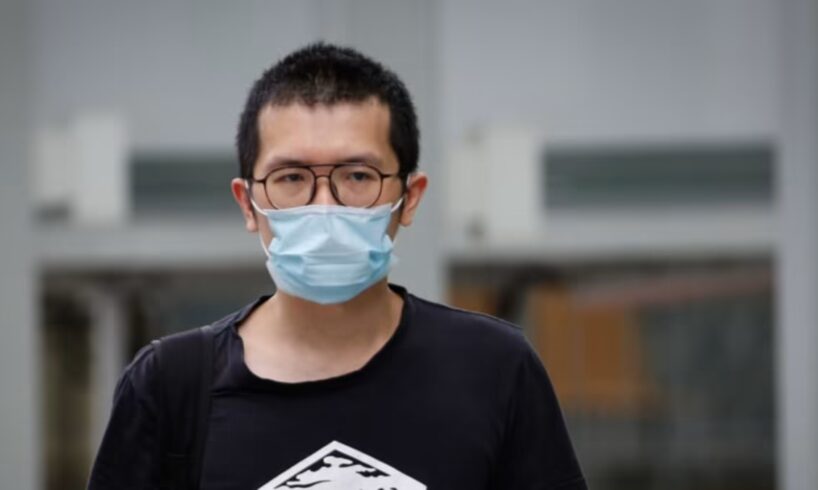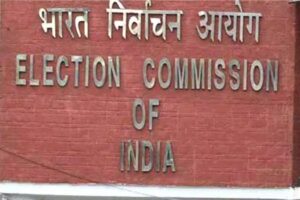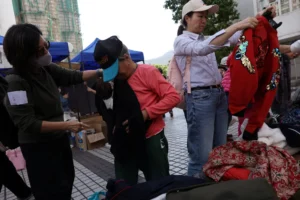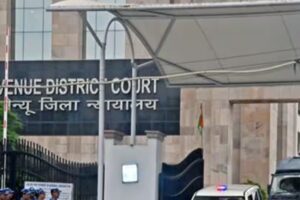
SINGAPORE: Fugitive lawyer Charles Yeo Yao Hui has been struck off the rolls, with the Court of Three Judges saying that he had shown himself “thoroughly unfit to wear the mantle of membership in this venerable profession of law”.
In a judgment published on Friday (Nov 28), the court flagged Yeo’s “disgraceful online conduct” and his “penchant for assaulting the integrity and impartiality of the justice system” in deciding that his offences warranted disbarring.
Yeo absconded from Singapore in 2022 while facing criminal charges and was last known to be in the United Kingdom.
The Law Society of Singapore (LawSoc) brought five applications against him for sanctions for conduct. They included the mismanagement of money and accounting records, failure to directly communicate with three migrant workers to verify their identity and instructions as he purported to act for them in workplace injury suits, abuse of court and publications on his Instagram account that impugned the integrity of the judiciary and the Attorney-General.
Arrangements were made to allow Yeo to log into the Zoom courtroom on the day of the hearing on Sep 11, but he did not show up.
Instead, he posted on Instagram saying, among other things, that he did not plan to engage with the “kangaroo courts of Singapore” and “spit” on them.
The Court of Three Judges, comprising Chief Justice Sundaresh Menon and Justices of Appeal Tay Yong Kwang and Steven Chong, found that all the charges were made out and there was no suitable sanction other than striking Yeo off the roll.
“MANIFESTLY UNFIT”
Delivering the judgment, Justice Chong said Yeo’s failings “went far beyond one-off lapses”.
“To the contrary, the gross extent of his breaches, both in terms of the quantity of offending incidents, reflecting their systemic and repeated nature, and the quality of his misconduct, which fell far short of the rudimentary level of integrity, probity, and trustworthiness which is expected of any member of an honourable profession, unequivocally signified his serious defects of character that rendered the respondent manifestly unfit to remain an officer of the court and an advocate and solicitor in Singapore,” said Justice Chong.
The court noted that it is “uncommon” for a lawyer to be found guilty of breaching all his duties like those in Yeo’s charges.
Justice Chong said Yeo’s “unfitness” is evidenced by his “clear inability to fulfil the essential responsibilities of a legal practitioner”.
The “cumulative effect of all his ethical transgressions” paints the picture of a legal practitioner who “held a cavalier disregard” for safeguards designed to protect clients, flouted an advocate’s most central duty to the court and “so consistently conducted himself on a public platform with such an unbecoming comportment as to bring disrepute” to the profession, said Justice Chong.
Yeo was admitted to the roll of advocates and solicitors in August 2016. He did not have a valid practising certificate between April 2022 and June 2022.
Around February 2022, an accountancy practice was appointed by LawSoc to inspect the books of account of Whitefield Law, where Yeo was a director.
A subsequent report identified at least 185 breaches of the Legal Profession (Solicitors’ Accounts) Rules (SAR). These were for instances such as where money was withdrawn from the client account without the court’s permission, or when client monies were deposited in the office account instead of the client account.
For the social media charges against Yeo, the court noted four categories with “objectionable contents”.
These were: Publications which scandalised the judiciary, publications which attacked the integrity, impartiality or independence of the Attorney-General, publications amounting to sub judice contempt of court and publications making “discourteous attacks against fellow members of the Singapore Bar”.
The judgment listed long paragraphs from his offending posts, which CNA will not be reproducing.
The court found that Yeo “revealed numerous character defects” which rendered him “plainly unfit to remain as a legal practitioner in Singapore”.
He had a “pattern of professional dereliction and a cavalier disregard for the serious responsibility of holding clients’ monies and taking due care to safeguard clients’ crucial interests in the proper protection of their funds”, said Justice Chong.
Yeo “simply could not be bothered to ensure that Whitefield’s financial records were in order”, he added.
As for the migrant worker cases, the court found that Yeo’s “sheer disregard” for their interests was “utterly appalling”.
Yeo’s conduct in court demonstrated a “particularly severe character defect – dishonesty”, said Justice Chong.
“Lastly, the respondent’s allegations and aspersions, ventilated over the public platform of Instagram, were highly dishonourable, and for them to have been made by a member of the legal profession unquestionably tended to shame and bring discredit to an honourable profession.”
“His attacks on legal institutions and individual lawyers were all filled with invective and gratuitously vituperative insults using vulgar language to humiliate and degrade the targets of his vitriol,” noted Justice Chong.
“There is no question that the average right-thinking member of the public would perceive such conduct to be disgraceful both to the respondent as an individual and, more significantly, to the legal profession – indeed, the very same profession whose imprimatur of legitimacy he wielded to clothe his attacks with a patina of authenticity and to masquerade as a knowledgeable ‘insider’ unearthing hidden truths about the domestic legal system.”
Justice Chong also referenced Yeo’s “total absence of remorse and contrition for his misconduct”, and how he has not offered any apology to date.
Yeo declined to participate in the disciplinary tribunal proceedings, boycotting them along with the hearing by the Court of Three Judges.
“His lack of any ethical insight into his own shortcomings to conduct even the most basic of checks to protect his clients’ interests is apparently lost on him,” said Justice Chong.
“In light of his attitude, there is little to no chance of the respondent being rehabilitated and rectifying any of the defects of character that we have identified.”





